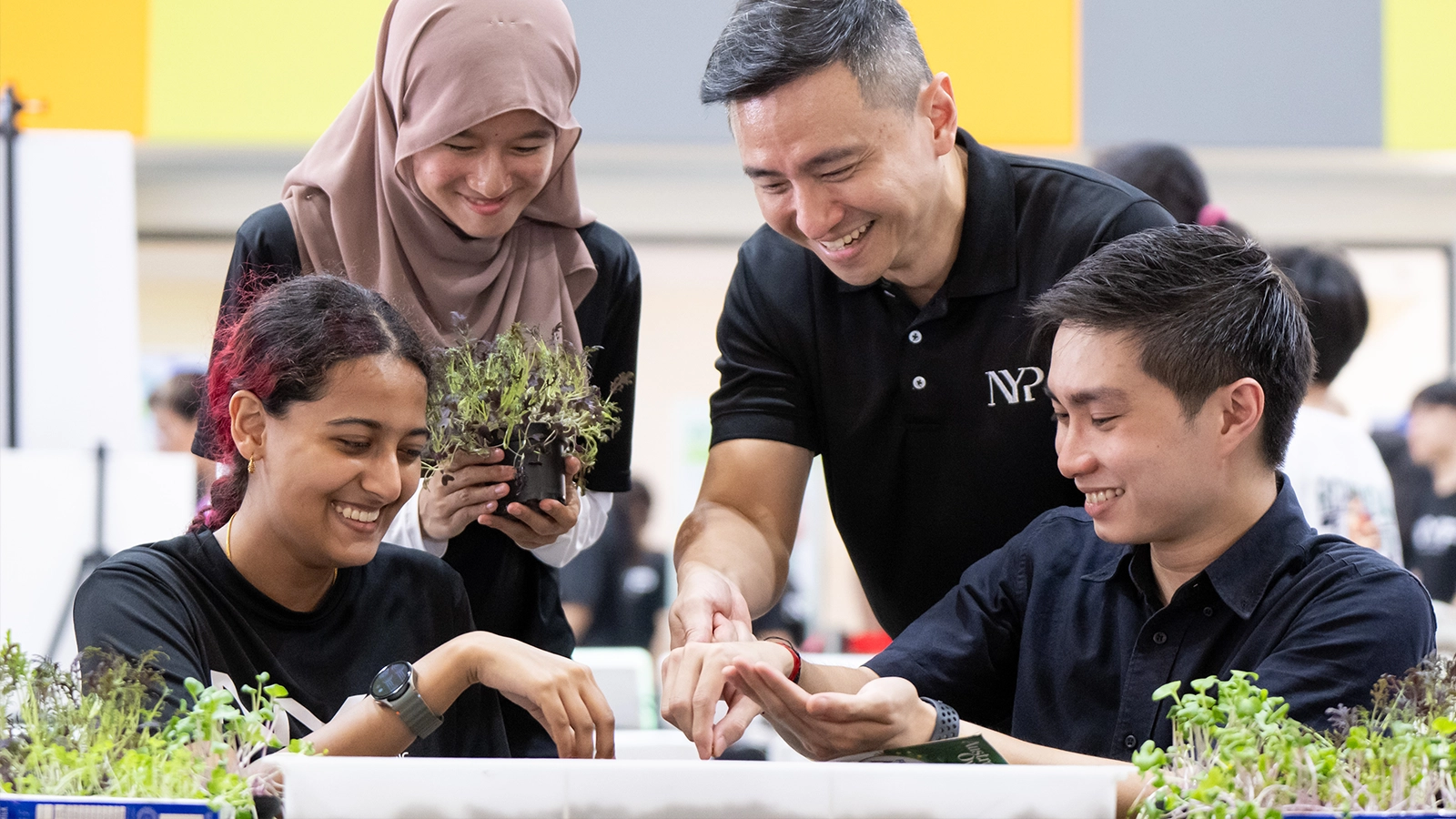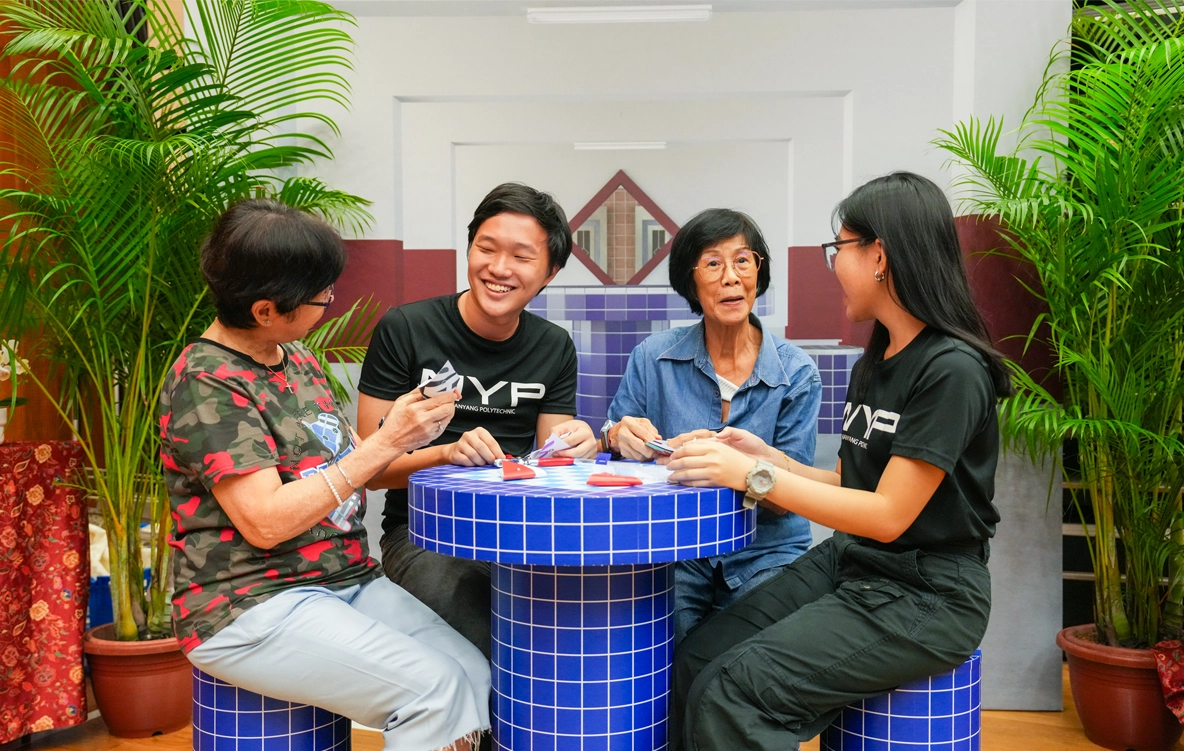Championing the sustainability hack
Five students from the Diploma in Architecture took a bold challenge at the finale of the Global Green Economic Foundation's SDG Open Hack, and took home the grand prize. Gieska Aulia Putri shares her team's experience.
.jpeg)
The winning team, Crit Survivors, from left to right: Chao Yi-an, Andaleon Alice Xandra Xyrille Rodriguez, Ng Sikai, Tongson Keira Szennaea Legaspi, Gieska Aulia Putri.
Can you share more about your project?
All the teams were to select one out of three Sustainable Development Goal (SDGs) to address through our projects. With our niche in Architecture, we chose to focus on the challenges of inadequate housing, limited access to basic services, and vulnerability to natural disasters faced by slum dwellers.
Our intensive research showed that most slums are made of unsustainable materials such as scrap and concrete, making them susceptible to natural disasters such as floods and landslides.
To address this issue, we proposed using modular bricks made of mycelium, an eco-friendly construction material, to build slum houses. Inspired by the "Design with Nature" Work-Integration Unit we took in Year 2, we harnessed the power of biomimicry to develop our proposal.

The Mycelium bricks are to be modular, so as to ensure a stronger structure that can withstand earthquakes, floods and natural elements.
We also suggested a business model that involves collaborating with NGOs and industry partners, so as to share sustainable building practices and create job opportunities for the residents. Through providing workshops, resources and guidance, the business model will train residents to build their own homes.
Our proposal aims to achieve the following impacts:
- Social: Improve social cohesion and quality of life for slum residents
- Economical: Improve cost-effectiveness in housing, and increase financial independence of slum residents
- Environmental: Introduce equitable access to naturally available materials that emit low carbon footprints
By leveraging the power of nature and human ingenuity, we believe our mycelium-based housing solution can contribute to a more sustainable and equitable future for all.
We understand that your team was one out of three teams selected from NYP's campus hackathon edition to participate in the grand finale. There were also five teams from other polytechnics. From prepping for the campus hackathon to the grand finale, how did you find your experience throughout the competition?
We found the experience very fulfilling, as we learnt numerous things along the way, especially when we did not know what to expect. We are also grateful for the advice and support from our mentors, Dr Patrik Johansoon and Ms Heng Yu Ping, who reviewed our pitch decks and advised us on improving our presentation skills.
What did your team learn about sustainability?
We learnt that sustainability involves the bigger picture of helping other countries, but at the same time starts from within our country. This project has helped to deepen our interest and knowledge in sustainable materials and circular design.
How do you think you can leverage this experience in your endeavors?
With this innovative and sustainable drive, we can make more impactful designs and solutions in the future.
Moving forward, we are excited to push this project further towards prototyping. We believe that transforming our idea into a minimum viable product is a crucial step toward realising our vision for sustainable housing solutions. This opportunity would not only allow us to test the feasibility of our design, but also bring us closer to addressing pressing housing challenges, both in Singapore and globally.
We recognise the potential impact that our mycelium-based modular homes proposal could have on communities facing inadequate living conditions. We look forward to working closely with experts for support and guidance, firming up the research that we have done thus far, refining our design, and developing better prototypes of the modular Mycelium bricks.
Beyond a typical design exercise, this project embodies our commitment to innovation and social responsibility.



